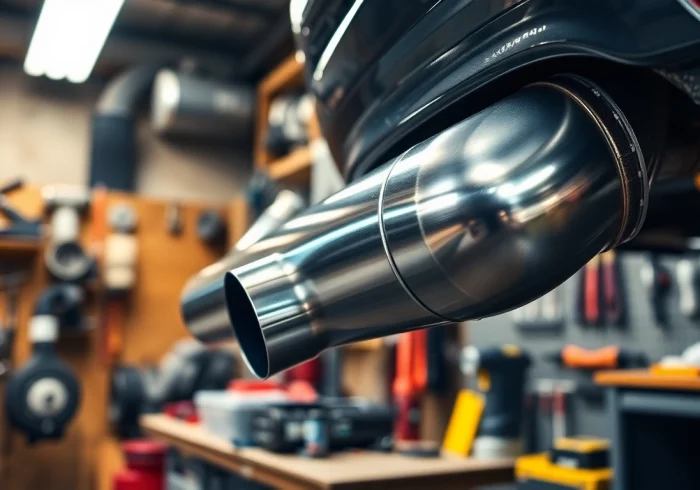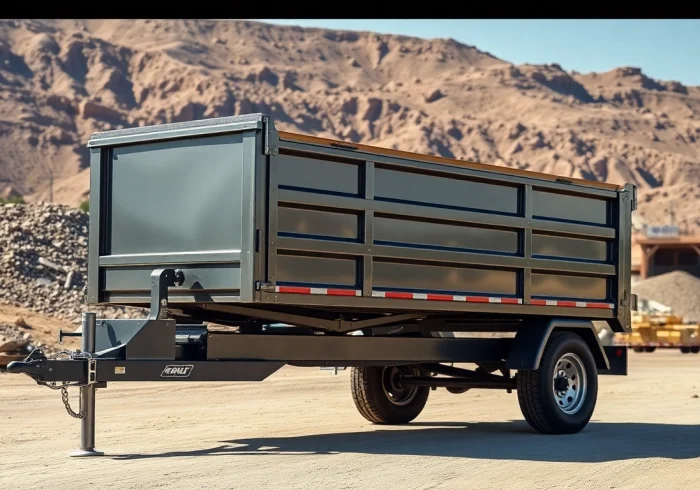Understanding the Competitive Car Part Exchange Process
Engaging in a Competitive car Part Exchange can be a wise decision for car owners looking to upgrade their vehicles affordably. The part exchange process not only simplifies the transition to a new vehicle but also integrates the value of your old car into the deal, giving you leverage in negotiations. Understanding the fundamentals of part exchange, the benefits it offers, and the common fallacies surrounding it can empower you as a savvy consumer in today’s competitive automotive market.
The Basics of Part Exchange
Part exchange involves trading in your current vehicle as part of the payment toward the purchase of a new or used car. The dealer assesses the value of your old vehicle and deducts that value from the price of your new car. This approach reduces the out-of-pocket expense for you and makes the overall car-buying experience easier and more streamlined. While the concept seems straightforward, various factors come into play that can affect the valuation and negotiation process.
Benefits of a Competitive Car Part Exchange
There are numerous advantages to opting for a competitive car part exchange, including:
- Convenience: You save time and effort by handling both selling and buying in one location.
- Immediate Value: The dealer provides an instant valuation on your trade-in, giving you predictable financial insight.
- Tax Benefits: In some areas, you might pay sales tax only on the cost difference between the new vehicle and the trade-in value, potentially saving money upfront.
- Expert Negotiations: Dealerships often have more experience in valuing cars, which can yield a considerate estimate on your vehicle.
Common Misconceptions About Part Exchange
Despite its advantages, many misconceptions about part exchange can potentially deter consumers from pursuing this option. Here are a few common myths debunked:
- Myth 1: Part exchange always offers more value than selling privately. In reality, selling privately often yields higher returns as you can avoid dealer markups.
- Myth 2: All dealerships will provide competitive offers. Each dealership has different policies and market assessments, so it’s vital to compare multiple options to find unsatisfactory deals.
- Myth 3: You should expect the same value for your car as you would receive from a private sale. Dealers typically need to resell the vehicle at a profit, so their offer is usually lower.
How to Prepare for a Competitive Car Part Exchange
Preparation is critical when considering a part exchange. The better prepared you are, the more likely you are to secure a competitive valuation for your vehicle.
Evaluating Your Car’s Worth
Before visiting a dealership, it’s advisable to independently determine the market value of your vehicle. Websites such as Kelley Blue Book or Edmunds can provide valuable insights into your car’s worth based on its make, model, year, mileage, and overall condition. An accurate self-assessment will help you approach negotiations with realistic expectations.
Gathering Necessary Documentation
Having your documentation in order is essential for a smoother transaction. Here’s a checklist of documents you’ll typically need:
- Title of the vehicle
- Registration paperwork
- Service history and maintenance records
- Any outstanding loan details if applicable
- Your driver’s license and proof of insurance
Cleaning and Presenting Your Vehicle
First impressions matter significantly in part exchanges. A clean, well-maintained car is more likely to command a higher trade-in value. Consider the following tips:
- Thoroughly wash and vacuum the interior and exterior.
- Address minor repairs or detailing, as they can translate into higher offers.
- Remove personal belongings and ensure that your vehicle is clutter-free for assessment.
Finding the Right Dealership for Your Competitive Car Part Exchange
Choosing the right dealership is crucial in securing a favorable part exchange deal. A strategic approach will yield better results.
Researching Local Dealerships
Start your search by looking for dealerships that specialize in your vehicle’s make or are known for their competitive part exchange offers. Read reviews online, ask friends for recommendations, and check online ratings to gauge the reputation of each dealer. Legitimate dealers often maintain transparency in their pricing processes and treatment of customers.
Comparing Offers from Multiple Dealerships
Once you’ve identified several potential dealerships, obtain trade-in quotes from each. It’s beneficial to approach more than one dealer to compare offers. Remember to present the same documentation and car condition to ensure that the comparisons are fair.
The Importance of Dealer Reputation
Good dealership experience often influences valuation and negotiation outcomes. Look for indicators of reliability, such as customer service ratings, their history of fair pricing, and complaint resolution responsiveness. Engaging with a reputable dealer can foster trust and potentially lead to better trade-in offers.
Navigating Price Negotiation in Competitive Car Part Exchanges
Negotiating effectively is essential in securing a competitive price during your part exchange. Understanding some negotiation tactics can level the playing field.
Preparing for Negotiation Tactics
Brush up on your negotiation skills before entering a dealership. Here’s how to prepare:
- Know the worth of your car and the prices of similar vehicles.
- Establish your bottom line—decide beforehand what you can accept to avoid settling for less.
- Employ willing-body language and maintain a professional yet approachable demeanor to create goodwill during discussions.
Understanding Dealer Pricing Strategies
Understanding the dealership’s perspective can enhance your negotiating position. Dealerships often use:
- Market Analysis: They assess local demand for certain models which can influence offers.
- Competitive Pricing: Details of surrounding dealership offers can also impact their pricing strategy.
- Full Disclosure: Be aware that dealerships will often negotiate offers based on emotions and urgency so staying calm can work to your advantage.
Effective Techniques for Better Offers
To secure a superior part exchange offer, consider employing these negotiation techniques:
- Build rapport: Establish a connection with the sales personnel; a friendly approach can open doors to better deals.
- Be assertive: Clearly express your expectations and the reasons behind your valuation; detailing assessment evidence strengthens your position.
- Be willing to walk away: By showing you’re not desperate for a deal, you elevate your leverage during negotiations.
Leveraging Online Tools for Competitive Car Part Exchange
In today’s digital world, technology can significantly streamline the part exchange process. Utilizing various online resources can aid in making informed decisions.
Using Valuation Tools for Accurate Pricing
Online vehicle valuation tools, like those available on Kelley Blue Book or Edmunds, can provide you with an estimate based on real-time market data. Using these tools can enhance your understanding of your vehicle’s fair market value, equipping you with data to support negotiations.
Benefits of Online Quotes vs. In-Person Offers
Obtaining online quotes before visiting dealerships can help establish initial expectations. Online quotes can be valid indicators of value, giving you a range to prepare and set a baseline for negotiations with dealers in person. Further, they enhance efficiency by allowing you to narrow choices based on competitive valuations.
Staying Informed About Market Trends
Keeping an eye on current market trends, such as seasonal pricing and economic factors affecting demand, can influence your timing and strategy. Utilizing platforms that analyze automotive market trends can arm you with insights to make better decisions on when to part exchange, ultimately leading to better evaluation and negotiation outcomes.



